No Results Found
The page you requested could not be found. Try refining your search, or use the navigation above to locate the post.


Undercover investigations in Australia show the horrendous animal welfare conditions in the EU-approved Meramist slaughterhouse.
This video is graphic, but it’s only 2 minutes and important to share to help raise awareness.
As Canadian icon, Jann Arden recently tweeted,
“If we always turn away from difficult things – especially when it comes to animal cruely – they will never change. The abusers are COUNTING on your apathy.”
I really don’t know what else to say except that those I have shared this video with privately have wept, and at the same time been more motivated than ever to continue working towards ending horse slaughter, not only in Canada – but beyond.
If you’d like to learn more about horse slaughter in Canada see the blog posts below and the menu at the top of the page.
Interested in what’s happening in Australia when it comes to horse slaughter?
May we recommend:

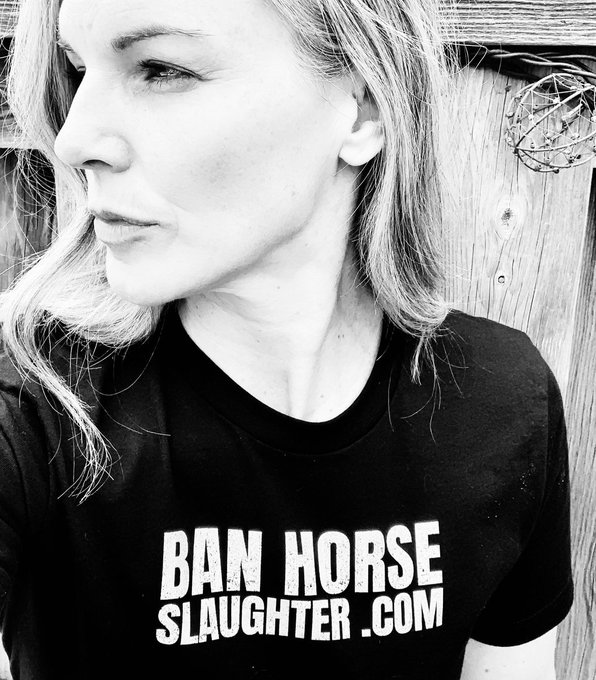
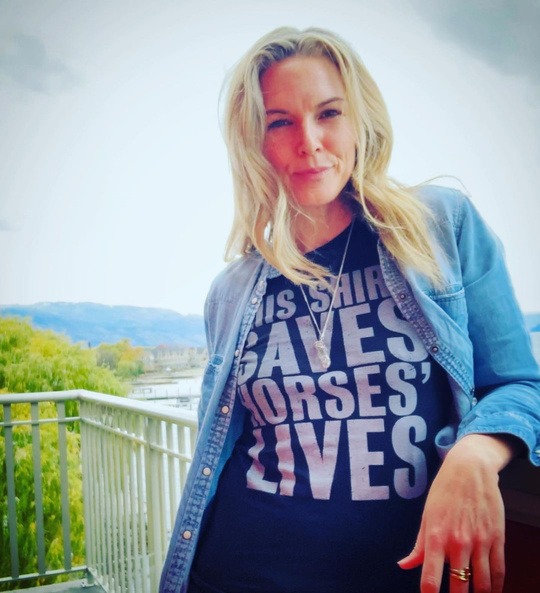
The page you requested could not be found. Try refining your search, or use the navigation above to locate the post.
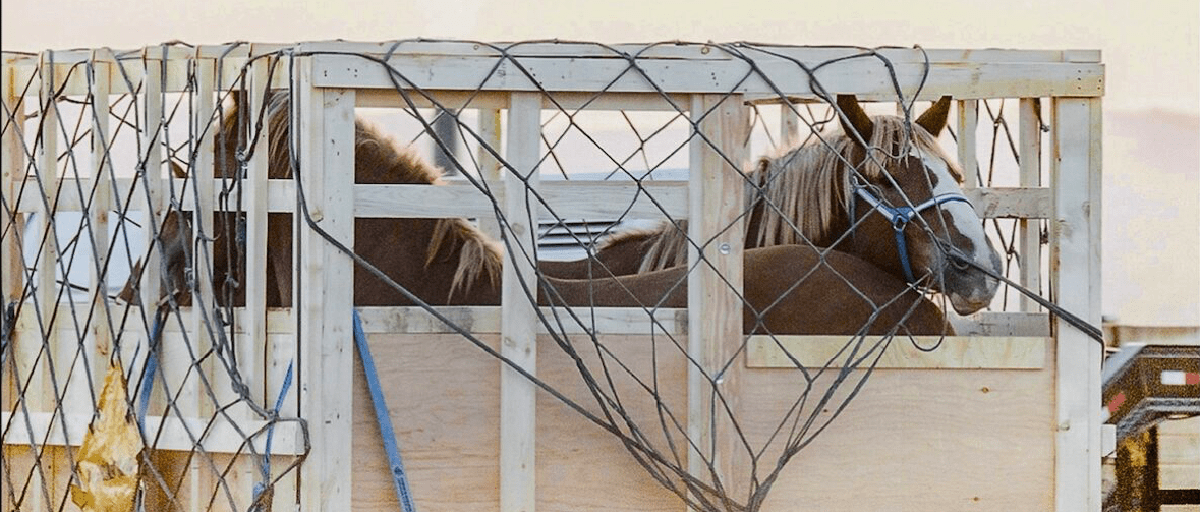
The Honourable Lawrence MacAulay, the current Minister of Agriculture and Agri-Food, has the power to end the inhumane export of horses by air for slaughter by enacting a regulatory amendment.
Help spread the word by sharing this email campaign with friends and family! You can also support the cause by donating—your contribution will help fund advertising efforts to raise awareness and push for change. Every action makes a difference!
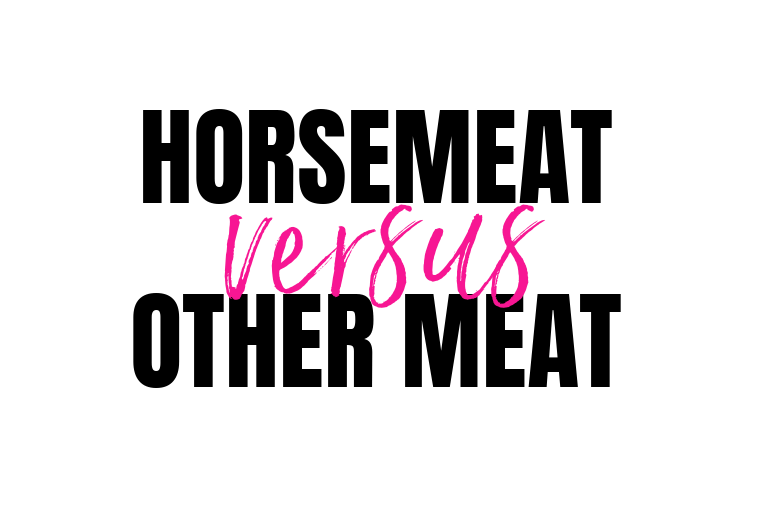
That is a fair question and one that those of us dedicated to ending the slaughter of horses in Canada and beyond, for human consumption, are frequently asked.
Let’s start by saying that many of our advocates have embraced the worldwide trend towards veganism.
Of course not everyone is vegatarian or vegan – or interesed in converting – we understand that.
But even so, there are many reasons why eating horses is different than eating meat from livestock that has been specifically raised to be slaughtered for meat.

First, many, if not most, of the horses slaughtered in Canada are former pets and other horses, including racehorses, that have routinely been treated with drugs that are not intended for use on animals entering the human food chain.
For example, wormers. Ask your horse owning friends how often they worm their horses.
Most horse owners worm their horses at least twice per year, and wormers are generally marked with instructions that they are not to be used on any livestock to be consumed by humans.
Another drug that is also not meant to be used on livestock entering the human food chain is a drug horse owners refer to as “bute“. The proper name is phenylbutazone.
Bute is used to treat everything in horses from minor muscle aches to inflammation to abscesses of the hoof, lameness, arthritis, and so much more.
Again, ask your horse owning friends, and chances are good, that at one time or another, they have used bute on their horses.
Recently there have been multiple recalls from Canadian supermarket shelves of horse meat contaminated with Clenbuterol, which like bute is highly toxic to humans.
And these types of recalls of drug tainted, toxic to humans horse meat have been going on for years.
For most people that’s enough to make them decide that eating horse meat is probably not a great idea.
There MUST be rules in place to make sure that horses treated with drugs, not meant to enter the human food chain are not slaughtered for human consumption – right?
Well, there are regulations in place.
The problem is, and the reason why drug tainted toxic horse meat ends up on Canadian supermarket and other store shelves — is that the rules are based on the honour system.
Those presenting horses to be slaughtered are asked to fill out an Equine Identification Document (EID) stating that the horse is rightfully owned by them, and that the horse is free of toxic drugs.
So meat AKA kill buyers picking up cheap horses from ads in the newspaper ,or online from sources like Kijiji, or Craig’s List, or from auctions, don’t have full medical histories on the horses they are reselling for slaughter. Yet, they fill out EIDs stating that the horses they are presenting are clear of any banned drugs.
The word of those presenting the horses is good enough for the slaughter houses. Again, a form is filled out, on the honour system.
Hence the 2019 and 2020 recalls of drug tainted, toxic horse meat and…
Again, recalls have been going on for years..
This is far different than how other animals raised specifically for human consumption are regulated.
The industry is so poorly regulated that even stolen horses are slaughtered and butchered for meat, the same day they are sold to a slaughterhouse.
Check out “Sold for Hamburger” and “2 Pet Horses Stolen and Slaughtered for Human Consumption“.
A recent study by the University of Guelph showed Canadians eating meat, may be eating horse meat without realizing it.
The federal agency charged with keeping the food supply of Canadians safe, the Canadian Food Inspection Agency (CFIA) was NOT surprised horse meat was found on Canadian grocery store shelves marked as other than horse meat.
Yes really.
Did you get that?
The CFIA were not surprised. So is it any wonder as Canadians learn about pet horses and other horses not raised specifically for meat being slaughtered in Canada – and sold as food fit for humans, they are outraged.
On February 27th, 2021 CTV’s W5 aired an Investigative Report on the inhumane live shipment of horses to Japan to be slaughtered there for human consumption.
Unlike horses slaughtered within Canada for human consumption, most of the horses that are live shipped to Japan have been specifically raised for meat, The W5 program was titled “Flight Animals“.
Those of us who understand horses “got” that the title referred to horses being flown to Japan, and that there is another meaning.
Many animals when faced with danger will stand and fight, but horses are what are referred to as “flight” animals because when frightened they will do their best to flee.
The fact that horses are flight animals is a huge problem when horses are in the process of being slaughtered within Canada, because as flight animals they will often seriously injure themselves as they attempt to flee, as they are about to be slaughtered…
And to make matters even worse, the methods used in Canada to slaughter horses were not designed specifically for horses, so they are not adequate to guarantee an instant death.
This results in horses that are sometimes still alive when hung up by one leg, to have their throats slashed, to be bled out.
I”ll spare you the gory videos here, but you can Google and visit YouTube to learn more.

A recent Nanos poll shows that a majority of Canadians do not agree with the slaughter of horses for human consumption. — I think it is because many of us consider our horses to be family members, the same way we consider our cats and dogs family members, and the vast majority of Canadians, at least in my humble opinion, wouldn’t think for even a second, that it is appropriate to eat a cat or dog.
You can learn more about many of the points raised above, and about horse slaughter for human consumption — by clicking on the blog posts below…
And if you are as appalled by this barbaric practice, as the majority of Canadians are, please reach out to your Member of Parliament and let them know how you feel.




The page you requested could not be found. Try refining your search, or use the navigation above to locate the post.

The Honourable Lawrence MacAulay, the current Minister of Agriculture and Agri-Food, has the power to end the inhumane export of horses by air for slaughter by enacting a regulatory amendment.
Help spread the word by sharing this email campaign with friends and family! You can also support the cause by donating—your contribution will help fund advertising efforts to raise awareness and push for change. Every action makes a difference!
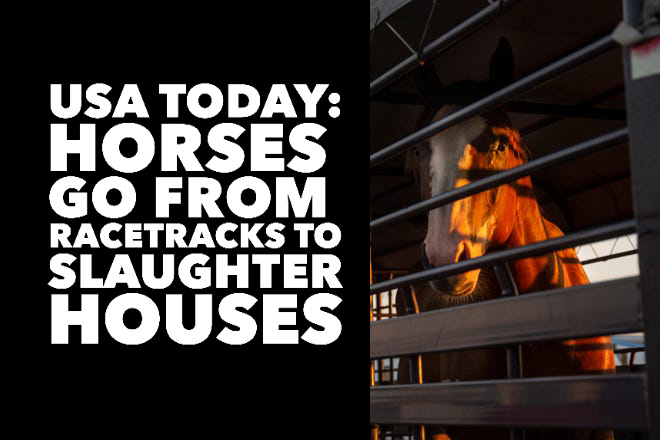
Re-post worthy article and VIDEO from USA TODAY.
FORNEY, Texas — Mike McBarron stepped out of the 96-degree heat and into a shed on his feedlot after loading 37 horses onto a truck. They were headed to Mexico, where they would be slaughtered and shipped around the world for human consumption.
“It’s just a job to me,” McBarron told USA TODAY Sports. “I mean, I don’t attach myself to them. I don’t fall in love with them.”
McBarron, 48, is one of the country’s most prolific “kill buyers,” people who buy horses and sell them to slaughterhouses. They also represent an uncomfortable reality for the horse racing industry.
Over the past decade, an average of more than 600 thoroughbreds a year have died because of racing, according to research by the USA TODAY Network.
By contrast, an estimated 7,500 thoroughbreds a year are slaughtered for human consumption, according to Alex Waldrop, president of the National Thoroughbred Racing Association (NTRA).
“The problem is that the entire industry is a conveyor belt for slaughter,’’ said John Holland, president of the Equine Welfare Alliance, a nonprofit organization dedicated to ending the slaughter of American horses. “They just keep cranking them (out).’’
McBarron, who acknowledged he has bought and sold retired racehorses for slaughter, has sent tens of thousands of horses to slaughter plants and generated millions of dollars in revenue, according to invoices cited in an informal investigation conducted by a nonprofit group called Animals’ Angels.
That practice is unlikely to be a popular topic this week at the Breeders’ Cup, which has attracted many of the sport’s top horses and intense scrutiny of the sport.
So what can you do to help stop this barbaric slaughter of race and other horses being slaughtered for human consumption?



The page you requested could not be found. Try refining your search, or use the navigation above to locate the post.

The Honourable Lawrence MacAulay, the current Minister of Agriculture and Agri-Food, has the power to end the inhumane export of horses by air for slaughter by enacting a regulatory amendment.
Help spread the word by sharing this email campaign with friends and family! You can also support the cause by donating—your contribution will help fund advertising efforts to raise awareness and push for change. Every action makes a difference!

Very special thanks to Maggie Hinton of Canadians Against Horse Abuse who writes:
Many Canadians and Americans do not realize that even though horse slaughter is currently not allowed in the United States, horses from both countries are slaughtered in Canada for human consumption.
Additionally, since 2012 draft horses have been shipped by air from Canada to Japan to be slaughtered for consumption, including for sushi.
The Canadian Meat Council, a member of the *Canadian Agri-Food Trade Alliance (CAFTA) coalition worked on a **deal with the Canadian Government and Japan to eliminate tarriffs on the export of horses from Canada to Japan for slaughter.
Since that time individuals and organizations including the Canadian Horse Defence Coalition(CHDC) have been lobbying the Canadian government to stop the shipment of live horses for slaughter to Japan.
CHDC issued the first press release on the subject of live horse exports to Japan for slaughter in 2012, and were quick to point out how shipping horses live to Japan is economically feasible, because the CFIA is turning a blind eye to their own shipping regulations…
“Footage taken of Alberta horses being shipped live to Japan for slaughgter shows that the Canadian Food Inspection Agency (CFIA) is violating their own standards set forth in the Health of Animals Regulations. The regulations prohibit the transportation of all animals under conditions that would expose the animals to undue injury or suffering.”
More recently CHDC sued the Canadian Food Inspection Agency, which is a Canadian Federal Government agency for blatantly ignoring international shipping regulations.
So again, like many others, you may be wondering how shipping horses by air to Japan could possibly be economically feasible.
Eliminating tariffs helped keep costs down. In addition, kill buyers and producers get away with keeping horses in crowded, wet, dirty, cold, feedlots without adequate shelter, including in winter — and we all know how cold Canadian winters can be. Horses are transported in crowded trailers to the airport.
Then because the Canadian Food Inspection Agency turns a blind eye, horses are shipped by air to Japan in flimsy, wooden crates, with as many as possible crammed into each crate. (Shipping regulations allow for one draft horse per crate, but that regulation is consistently ignored.)
When shipping by air, horses are denied basic nutrition and water, pushing the limit to what the horses can tolerate. Horses destined for slaughter travel to Japan without the watchful eye of a trained equine specialist. After all, that would mean an added expense.
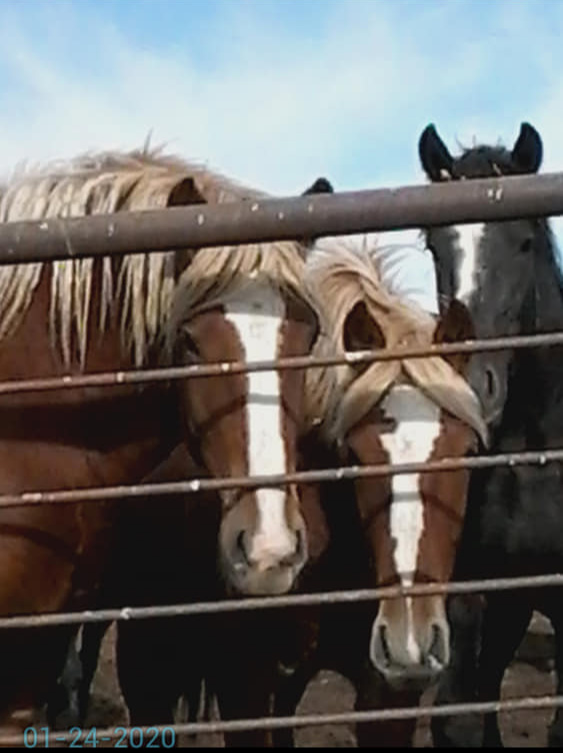
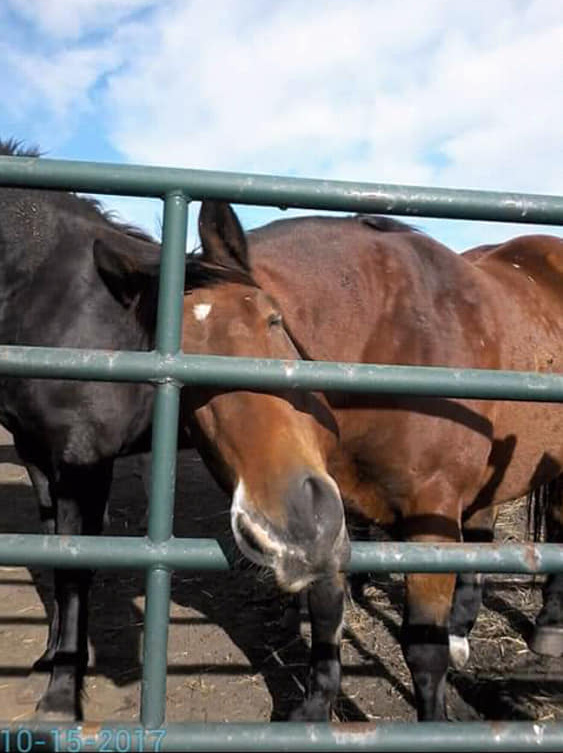
Pictures of horses in a holding pen in Alberta, Canada and destined for slaugher -- are courtesy of Christine Gallant.
*The Canadian Agri-Food Trade Alliance (CAFTA) is a coalition of national and regional organizations that support a more open and fair international trading environment for agriculture and agri-food. CAFTA’s members: Canola Council of Canada, Canadian Cattlemen’s Association, Pulse Canada, Soy Canada, Canadian Pork Council, Canadian Meat Council, Canola Growers Association, Grain Growers of Canada, Cereals Canada, Canadian Sugar Institute, Alberta Cattle Feeders Association, National Cattle Feeders Association, Barley Council of Canada. Based on domestic exports data for 2015, CAFTA’s members account 48 billion dollars of exports, representing 80% of the total value of Canadian agricultural and agri-food products exports.
**In 2012 Canada and Japan announced the launch of negotiations towards a comprehensive and high-level economic partnership agreement (EPA). The agreement known as the Canada-Japan Economic Partnership seeks to reduce and in some cases eliminated the non-tariff and tariff barriers that limits trade between the two nations.
CAFTA seeks expanded market access in Japan through the removal of import tariffs and non-tariff trade barriers.
CAFTA supports Canada’s participation in the EPA and believes it will significantly contributes to the growth and competitiveness of the agricultural sector.”
The following is page 2 of a 1,134 page report – a spread sheet:
https://www.international.gc.ca/trade-agreements-accords-commerciaux/assets/pdfs/tpp-ptp/2-D.Japan-Tariff-Elimination-Schedule.PDF (Global Affairs Canada)
“TARIFF SCHEDULE OF JAPAN (HS2012)
(Year 1 – 21 and subsequent years)
LIVE ANIMALS AND ANIMAL PRODUCTS – (NO TARIFFS with exception of 010121.290)
01.01 Live horses, asses, mules and hinnies
Horses
0101.21 Pure-bred breeding animals
010121.100 Certified as being those other than Thoroughbred,Thoroughbred-grade, Arab, Anglo-Arab or Arab-grade horses (hereinafter referred to as “light-breed horses”) in accordance with the provisions of a cabinet order
2 Other
010121.210(1) “Light-breed horses” certified as being those used for purposes other than horse-race and as being not pregnant in accordance with the provisions of a cabinet order
010121.290(2) Other 3,400,000 yen/each
0101.29 Other
010129.1001 Certified as being not “light-breed horses” in accordance with the provisions of a cabinet order
2 Other
010129.210(1) “Light-breed horses” certified as being those used for purposes other than horse-race and as being not pregnant in accordance with the provisions of a cabinet order “



The page you requested could not be found. Try refining your search, or use the navigation above to locate the post.

The Honourable Lawrence MacAulay, the current Minister of Agriculture and Agri-Food, has the power to end the inhumane export of horses by air for slaughter by enacting a regulatory amendment.
Help spread the word by sharing this email campaign with friends and family! You can also support the cause by donating—your contribution will help fund advertising efforts to raise awareness and push for change. Every action makes a difference!

Once again we’d like to thank Jann Arden for all she does to help support the banning of horse slaughter for human consumption.
American horses are routinely exported to Mexico and to Canada to be slaughtered.
Horses raised in Canada, including pet horses and discarded race horses, are slaughtered in Canada and horses are also shipped live from Canada to Japan to be slaughtered there.
The Canadian Horse Defence Coaltion is currently suing the Canadian Food Inspection Agency for blatantly ignorning international shipping regulations and allowing horses to be shipped in conditions that are inhumane.
You can save horses’ lives with one of these T-shirts @ban.horse.slaughter help stop beautiful horses from being shipped overseas for human consumption. It’s awful…



The page you requested could not be found. Try refining your search, or use the navigation above to locate the post.

The Honourable Lawrence MacAulay, the current Minister of Agriculture and Agri-Food, has the power to end the inhumane export of horses by air for slaughter by enacting a regulatory amendment.
Help spread the word by sharing this email campaign with friends and family! You can also support the cause by donating—your contribution will help fund advertising efforts to raise awareness and push for change. Every action makes a difference!
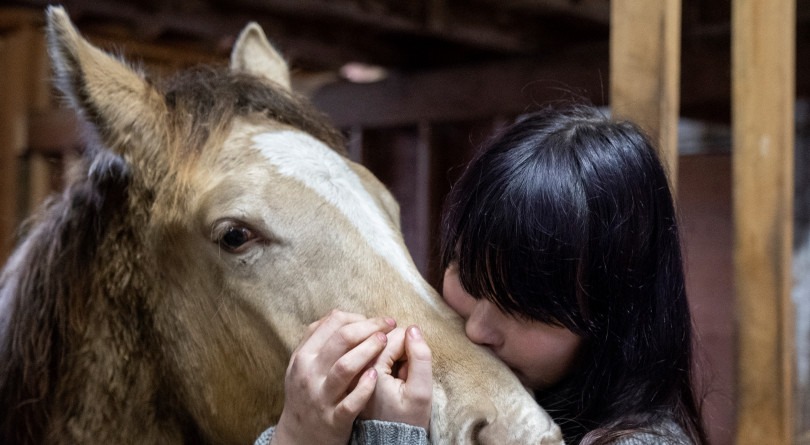
Photo by: Jen Osborne
“These activists are trying to change that.
The Canadian Horse Defence Coalition is waging a court battle to end Canada’s role as an exporter of live horses and frozen horsemeat for human consumption.”
Marie writes:
Thank you Canadian Horse Defence Coalition for all you do to help so many!
AND thank you to Maclean’s Canada for running this article to help raise awareness.
Canadians of courrse recognize Maclean’s magazine but for those reading from outside of Canada, this is a nationally recognized publication that was founded in 1905, and reports on Canadian issues such as politics, pop culture, and current events.
Mann had read the Canadian animal-health regulations which require horses over 14 hands high to be shipped solo in containers large enough to allow them to stand in a natural posture.
But she had routinely observed groups of three or four large horses being loaded into one crate with ceilings so low their ears poked through the top.
“There was no way they had enough room,” she says.
She condensed her footage into a three-minute YouTube video and in 2012 gave it to Sinikka Crosland at the Canadian Horse Defence Coalition, an animal rights group lobbying to stop the slaughter of horses.
Here, thought Crosland, was the perfect opportunity to raise awareness for their cause.
Photo at top of this post: A rescue farm in Duncan, Vancouver Island, holds horses that have avoided slaughter (Photograph by Jen Osborne)



The page you requested could not be found. Try refining your search, or use the navigation above to locate the post.

The Honourable Lawrence MacAulay, the current Minister of Agriculture and Agri-Food, has the power to end the inhumane export of horses by air for slaughter by enacting a regulatory amendment.
Help spread the word by sharing this email campaign with friends and family! You can also support the cause by donating—your contribution will help fund advertising efforts to raise awareness and push for change. Every action makes a difference!